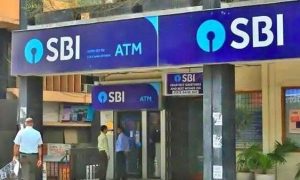This means that the interest earned on the part of provident fund contribution that is above Rs 2.5 lakh would be added to the total income of the taxpayer, which is usually taxed at the rate corresponding to the tax slab applicable for the income.
The proposed taxation of interest income accruing from provident fund on annual contribution above Rs 2.5 lakh would be treated in the same manner as the taxability of interest income on fixed deposits is governed, a Central Board of Direct Taxes (CBDT) official said on Wednesday.
This means that the interest earned on the part of provident fund contribution that is above Rs 2.5 lakh would be added to the total income of the taxpayer, which is usually taxed at the rate corresponding to the tax slab applicable for the income.
“Instances have come to the notice where some some employees are contributing huge amount to these (provident) funds and entire interest accrued/received on such contributions is exempt from tax under clause (11) and clause (12) of section 10 of the Act,” the memorandum to the Budget proposal said.
It added that the exemption, without any threshold, benefits only those who can contribute a large amount to these funds as their share, and hence the law is now altered to tax the interest income accrued during the previous year. The new clause would come into effect from April 1 this year.
“The contribution to the provident fund that is in excess of Rs 2.5 lakh would be in a separate basket and interest on that particular corpus would be taxable,” Kamlesh Varshney, joint secretary of tax policy and legislation unit of CBDT, said.
Separately, the Budget has now imposed a TDS of 0.1% to be deducted by a buyer of goods (with turnover above `10 crore) if they purchase goods worth above Rs 50 lakh in a year from a particular seller. In the last Budget, the TCS liability was imposed on sellers with same turnover and consignment value.
Varshney clarified than if any transaction triggers both TCS and TDS conditions then TDS would assume primacy and TCS will not apply.





































